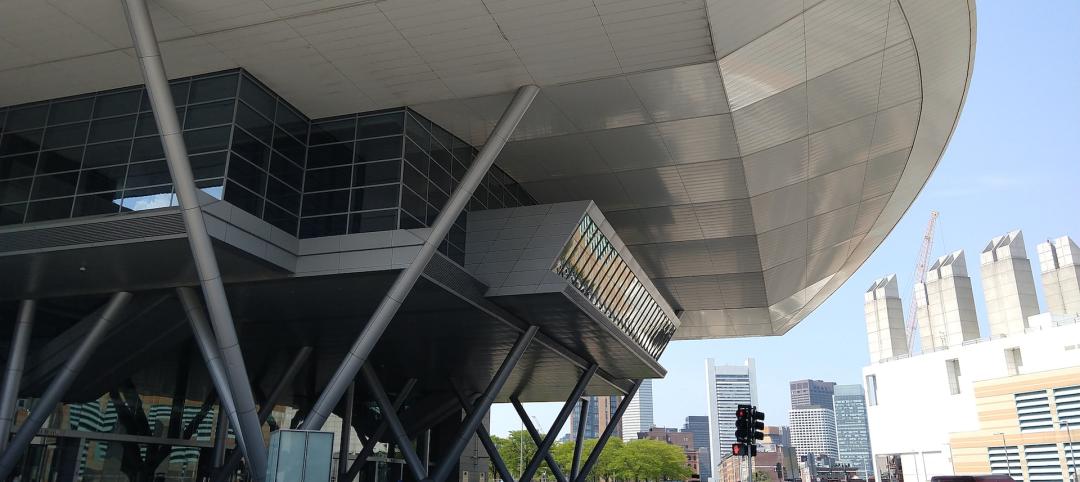The American Institute of Architects and MIT’s Center for Advanced Urbanism today announced the completion of their initial research report on eight cities and urban health, and laid out a path for translating this research into meaningful findings for policy makers and urban planners. You can see the full report here.
More than half of the world’s inhabitants live in urban areas, and this is projected to grow to 70 percent by 2050. Massive urbanization can negatively affect human and environmental health in unique ways, and many of those effects can be addressed through the realm of design. Some of the great health challenges over the next century, including the prevalence of obesity, asthma, cardiovascular disease, diabetes, and depression, among others, are both increasing at an alarming rate and frequently linked to socioeconomic factors, physical design and urban environmental factors.
“What this research represents is our first attempt to examine an array of urban health matters in eight major metropolitan areas in the United States, and to suggests a wide array of possible remedies, from better transportation planning to landscape retrofits,” said AIA Chief Executive Officer Robert Ivy, FAIA. “As we go forward, this collaboration will seek design recommendations that can be individualized to urban markets.”
“I would like in particular to congratulate the dozen or so students at MIT’s Center for Advanced Urbanism and in particular Alan Berger, professor of landscape architecture and urban design, and Andrew Scott, associate professor of architecture, for the incredible amount of effort and insight that went into compiling this report,” Ivy said.
“This research begins to unearth a truth that urban planners for many years have not realized, which is that there is no silver bullet for urban health,” says Adèle Naudé Santos, Dean of the School of Architecture + Planning at MIT. “Every city has different socioeconomic and physical layout issues. So the solution to make urban health better is going to [vary] in every city. One of the reasons we wrote the report was to give people a sense that the silver-bullet mentality, from technological or policy perspectives, needs to stop.”
“If we really want to look at urban health, we have to look across the entire metropolitan area that’s been urbanized in order to address the systems that make it perform,” said Berger. “You can’t look at a building without thinking about how people get to that building. The holistic way we look at cities here at MIT is that a city is a metropolitan area with all kinds of different fabrics, in terms of transit, economics, industry, the environment, and more.”
The report covers research that so far has been conducted in eight American cities - Atlanta, Houston, LA, San Francisco, Chicago, Minneapolis, Boston and New York. Teams of researchers have fanned out in each city to gather data about each city’s major design projects. The next step is to determine which city will serve as the ultimate laboratory for design solutions that can have a major impact on public health.
“Over the coming semester we will enter into discussions with city leaders, foundations, and local businesses to figure out where we can do the most good through collaboration on creating design solutions that improve urban health environments,” said Santos. “The research we have done so far sets the framework; what comes next is the real effort to come up with reliable design solutions to the health crisis facing America’s cities.”
About the American Institute of Architects
For over 150 years, members of the American Institute of Architects have worked with each other and their communities to create more valuable, healthy, secure, and sustainable buildings and cityscapes. Members adhere to a code of ethics and professional conduct to ensure the highest standards in professional practice. Embracing their responsibility to serve society, AIA members engage civic and government leaders and the public in helping find needed solutions to pressing issues facing our communities, institutions, nation and world. Visit www.aia.org.
About the MIT, Center for Advanced Urbanism
Established in 2012, the MIT Center for Advanced Urbanism’s objective is to become the world’s pre-eminent cultural center about the design of metropolitan environments, by articulating methods and projects to integrate separate disciplinary agendas in architecture, landscape, ecology, transportation engineering, politics and political philosophy, technology and real estate through a most eloquent design culture on scales ranging from the complex infrastructural intersection, to that of a neighborhood, on to the scale of an entire regional system.
Related Stories
Sponsored | BD+C University Course | Jan 17, 2024
Waterproofing deep foundations for new construction
This continuing education course, by Walter P Moore's Amos Chan, P.E., BECxP, CxA+BE, covers design considerations for below-grade waterproofing for new construction, the types of below-grade systems available, and specific concerns associated with waterproofing deep foundations.
Sponsored | Performing Arts Centers | Jan 17, 2024
Performance-based facilities for performing arts boost the bottom line
A look at design trends for “budget-wise” performing arts facilities reveals ways in which well-planned and well-built facilities help performers and audiences get the most out of the arts. This continuing education course is worth 1.0 AIA learning unit.
Giants 400 | Jan 15, 2024
Top 130 Hospital Facility Architecture Firms for 2023
HKS, HDR, Stantec, CannonDesign, and Page Southerland Page top BD+C's ranking of the nation's largest hospital facility architecture and architecture engineering (AE) firms for 2023, as reported in the 2023 Giants 400 Report.
Airports | Jan 15, 2024
How to keep airports functional during construction
Gensler's aviation experts share new ideas about how to make the airport construction process better moving forward.
Adaptive Reuse | Jan 12, 2024
Office-to-residential conversions put pressure on curbside management and parking
With many office and commercial buildings being converted to residential use, two important issues—curbside management and parking—are sometimes not given their due attention. Cities need to assess how vehicle storage, bike and bus lanes, and drop-off zones in front of buildings may need to change because of office-to-residential conversions.
MFPRO+ News | Jan 12, 2024
As demand rises for EV chargers at multifamily housing properties, options and incentives multiply
As electric vehicle sales continue to increase, more renters are looking for apartments that offer charging options.
Student Housing | Jan 12, 2024
UC Berkeley uses shipping containers to block protestors of student housing project
The University of California at Berkeley took the drastic step of erecting a wall of shipping containers to keep protestors out of a site of a planned student housing complex. The $312 million project would provide badly needed housing at the site of People’s Park.
Giants 400 | Jan 12, 2024
Top 10 Casino Architecture Firms for 2023
JCJ Architecture, HBG Design, Gensler, and WATG top BD+C's ranking of the nation's largest casino architecture and architecture engineering (AE) firms for 2023, as reported in the 2023 Giants 400 Report.
Senior Living Design | Jan 11, 2024
Designing for personal technology is crucial for senior living facilities
Today’s seniors are increasingly tech savvy. It isn’t enough to give senior living residents a pre-determined bundle of technology and assume that they’ll be satisfied.
Giants 400 | Jan 11, 2024
Top 40 Convention Center Architecture Firms for 2023
TVS, Populous, Arcadis North America, Gensler, and EUA top BD+C's ranking of the nation's largest convention center and event facility architecture and architecture engineering (AE) firms for 2023, as reported in the 2023 Giants 400 Report.
















